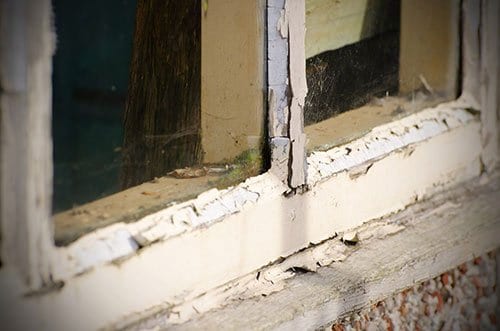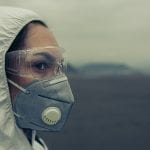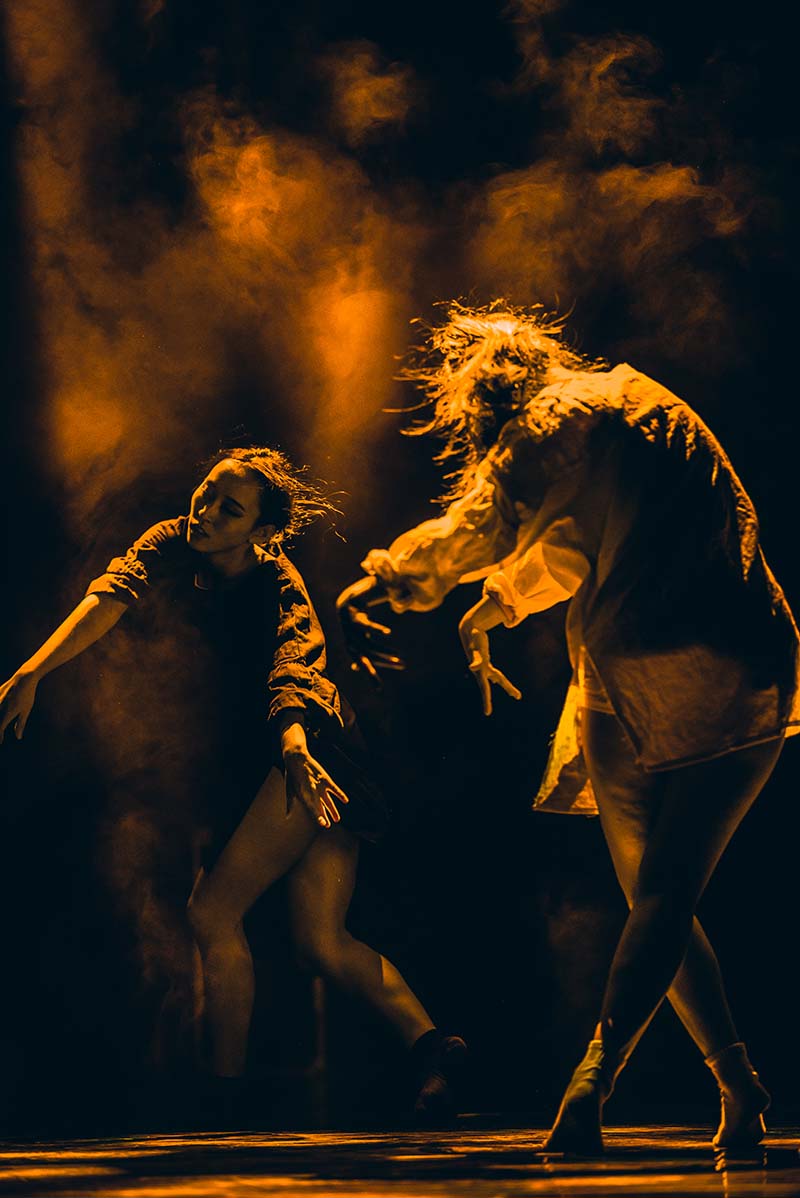On Every Street
There’s one in every town, an old house where an elderly person or couple have lived for years in relative isolation. The neighbors don’t see them much and it doesn’t appear as if they have any family or friends visiting them. On the rare occasions when they are seen, they may exchange a wave or nod at you as you walk past, but the message is clear: I’d really like to be left alone, thank you very much.
A young mother pushing a baby carriage may see a worn, gray-haired woman in a tattered bathrobe beckoning feebly from her living room window. What she is saying through the thick glass can’t be heard, there are only jerky and insistent gestures, off-putting and awkwardly urgent. The young woman thinks dementia as she flashes a smile and nods at the grandmother before pushing on in a hurry.
At Halloween, children avoid the dwellings of the old and isolated, as do the Christmas carolers. When storms knock out electricity, few bother to see if the aged are all right or even if they have enough food. During heat waves, no one thinks to check to see if they have air conditioning.
The seasons are simply registered as changes in temperature for the elderly who live alone: it’s hot for awhile and then cold, sweaters are worn and extra blankets are used for a few months, and then screens are inserted to allow in fresh air or a breeze when the sweltering nights arrive.
When an old person is no longer collecting their mail, only a few observant people notice. Unreturned phone calls are tolerated for a week or more, but after a month, the elderly need to be looked in on to see if they are all right. A grown son or daughter or other relative who hasn’t visited in years will request a welfare check. The police will knock on the door and ring the bell and peer into the dirty windows. If there is no response, they gently gain access.
They are confronted with a sour stench. They track the odor to the back of the property. On the floor in the bedroom is the decomposing body of an old, withered up husk. The internal gases form large blisters, and the body has started to bloat and swell and leak.
Neighbors watch as a silent ambulance and a second police car pull up in front. In less than two hours, both vehicles have left as quietly as they arrived. The body is taken to the morgue and an autopsy performed the following afternoon. Yellow tape is stretched over the doors and windows, forbidding entrance.
A few days later, the tape is removed and a cleanup crew wearing protective gear arrives. They notice stacks of yellowed newspapers strewn about the rooms. Nothing appears to have been dusted or cleaned in many years. Flies now buzz about. After the bedroom is cleaned up, it’s sprayed with insect repellent. Gloved hands empty the refrigerator of its long-spoiled food. All the garbage—nineteen bags—is removed and packed in the back of the truck.
They are finished in three hours. They make certain they’ve left none of their cleaning supplies behind. On the coffee table they place an air freshener. It has their company name stencilled on the bottom. Once they have checked to be sure all the doors and windows are secured, they say with satisfaction, as they always do, “It really doesn’t smell that bad anymore.”
~~~OOO~~~
Jeremy Jenkins, the nephew of the late Elroy Jenkins, arrived in town a few weeks after the cleaning crew left his uncle’s home.
Nothing had gone right on this trip. Jeremy was late getting to the airport—he missed his flight. That had never happened to him before but the traffic to O’Hare had been worse than usual and, even though he had left in plenty of time, he was out of luck.
He waited three hours for the next flight to Akron. Because he had to rebook and the plane was almost full, he was stuck at the very back. His seat didn’t recline. A storm blossomed out of nowhere and then went berserk, grounding all air travel for another two hours. When it was finally time to depart, everyone on board was in a foul mood and the crew matched each passenger’s frustration, glare for glare.
Jeremy had booked the motel for one night. He had already contacted the real estate agent and planned to look at the house in the morning to see if he wanted any of his uncle’s possessions—the realtor would meet him there at noon. This was not a trip of mourning; he had no sentimental attachment to the property or his uncle, whom he thinks he may have met sometime back in the 1980s. They never spoke on the phone or exchanged any letters. Elroy was one of his deceased father’s seven brothers and Jeremy had no idea why he was the one stuck with his uncle’s estate. It had all happened very quickly—at first, he was suspicious and thought it was a scam. Who inherits real estate from a forgotten relative?
But here he was, finding his way down the streets to his uncle’s former home at 22 Mildred Avenue. The cab ride from the motel to this rundown area of town had been uneventful. The problem had occurred when the driver—brand new to the job, of course—hadn’t known there was both an East Mildred Avenue and a West Mildred Avenue. He’d been dropped off at the wrong location. An exasperated call to the real estate agent cleared things up. He was five blocks shy of his destination.
Jeremy headed east and passed modest one and two-story homes, most of which needed a fresh coat of paint and serious landscaping. The further he walked and the more he saw, the surer he felt that he wouldn’t be fetching much from Elroy’s place. He would price it to sell, make a few bucks off of it if he was lucky, and consider it found money.
Clink, clink, clink.
Jeremy heard the sound to his left and stopped. He was in front of a two-story residence with a cracked “For Sale” sign planted in front of it, the handwritten phone number long ago bleached out by the sun. He remained still, straining to hear the sound again. It had been like metal tapping on glass. There was no one else around. He had seen three realtor signs and knew he’d be adding a fourth by the end of the day.
The sound didn’t come back. Jeremy continued down the street, watching the address numbers descend as he moved down Mildred Avenue, until, at last, he was at his uncle’s home.
~~~OOO~~~
It was a single story ranch that had once been painted brown; much of the color had chipped off or had faded over the years. A long stretch of elevated brickwork made up the face of the property. It held a tightly packed, robust cluster of weeds where Jeremy presumed flowers had once grown. Above that was a window. The lawn was yellow and weedy and the bushes were either dead or dying.
What a disaster, Jeremy thought. He wondered about his uncle, why he had spent his last years in this mess or why he hadn’t bothered to maintain it. And why give it to me? Were the other brothers dead?
After his parents had passed away, Jeremy had no contact with the rest of the relatives. His father had come from a huge family of seven brothers and they were spread all over the country. They never seemed to have any money.
Jeremy dug the key out of his pocket, inserted it into the front door, and entered the gloom. The air was stuffy and heavy, the room freshener that had been placed on the coffee table had given up the effort; it was only a thin wedge of its former self. Jeremy flicked a wall switch. The weak bulb under a dust covered table lamp responded. It barely made a dent in the dimness. He could make out stacks of old newspapers that stood about him like sentries, but that was about it. Everything else was in shadows.
The kitchen was off to his right. In a few steps, he had moved from the patchy shag carpet of the entryway onto slightly sticky tile. His footsteps echoed for an instant, a hollow sound, and then all was silent. He parted the yellow, threadbare curtains that were above the sink. The glass behind them was filthy and smudged with fingerprints. Very little light came through. He unclasped the lock and struggled to open the window. He hoped the fresh air would usher out the odor.
Looking out at the back yard, he saw that it was much like the front; weeds, overgrown bushes, and a twisted metal fence. He saw a decrepit compost pile next to a stack of wood. That was it. No garden or any attempts at landscaping.
The refrigerator was empty and had been wiped clean. Thank God. Jeremy could only imagine what had been thrown out. One by one, he pulled open the drawers and scanned the contents: filthy, mismatched silverware; an assortment of rusty carving knives; a junk drawer; tools; rubber bands; ketchup and mustard containers from fast food restaurants; coupons that had all expired a decade earlier.
The cupboards were filled with the usual plates and pots and plastic containers. He checked the cabinets and under the sink. Nothing of value, nothing he wanted. The counters were covered with stacks of junk mail and catalogs. The calendar on the far wall was from five years ago.
Sad, Jeremy thought bleakly as he padded back onto the living room shag carpet.
He pulled back the drapes from the picture window. They released puffs of gray dust and debris. He stepped back while he watched them all settle. For some reason, the sunlight through the pane appeared greenish. He looked closer and discovered the glass was lightly tinted for privacy.
The living room had a sofa, a recliner, and a TV set in a cabinet. There were no photographs or any decorative items; it had even less charm than your cheapest motel room. The paneled walls and their vertical lines were everywhere he looked, somewhat like the bars in a jail cell. No bookshelves or posters or knickknacks or anything to show that someone had ever lived there.
There was an end table next to the recliner with two drawers. The top one contained a deck of cards strapped together with a rubber band and the other one was empty. A closet behind the recliner was filled with more stacks of newspaper. Jeremy had glanced at a few of the dates and headlines but it all appeared to be random, a collection from the past decade but gathered for no real reason that he could discern.
Sad, was the only word that again came to mind. Jeremy wondered about the tragic, bleak life his uncle lived. What did he do here all day?
The bedrooms were all that remained to explore. He hesitated because he knew that one of them was where Elroy’s body had been found. Also, it was the most personal and private place in anyone’s home. I wouldn’t want someone snooping through mine, Jeremy thought. And he didn’t really want to know anything intimate about his uncle. He was there to give the place a quick once over, check for any treasures, and then get it on the market and get it sold.
However, he supposed if there were any valuable items, they’d be in his uncle’s bedroom so he started toward the hallway. But after only a couple steps, he stopped short.
There was something about the passage that made him hesitate. It looked unnaturally dark, as if it was closed off from the rest of the room, or wanted to be its own separate place, impassible.
Why would you think that? Jeremy asked himself even as he found he couldn’t help peering into the deep blackness before him, trying to discern if there was anything he could see. Maybe all the windows in the back of the house were closed off or the doors were closed? The weak radiance from the lamp didn’t stretch very far, and actually stopped at the corridor as if it had encountered a barrier.
He felt something shimmer off the back of his neck. He flinched wildly and cried out, thinking it was an insect, but realized it was just nerves.
Why am I so jumpy?
He squinted again into the deep gloom. Surely he was mistaken, but it seemed that the passage way was actively opposing any attempts of light to pierce its realm. He shook his wrists and squared his shoulders, trying to get himself energized. “Get a move on,” he said, hoping his own voice would embolden him. But he sounded nervous and uncertain, and remained where he was. The longer he stood there, the darker and thicker the area before him appeared to be. He wanted to check out the bedrooms and then get out, but some creepy stupor had taken over.
Put some light on the subject—the thought came suddenly to him. He pulled his phone out of his back pocket. It was 10 a.m. He sighed with relief as he activated the flashlight app. The bluish-white glow burst forth like headlights or a flashbulb, and Jeremy was blinded for a moment. But it was powerful enough that the darkness fled in an instant. He was relieved and immediately calmed to see that it was just a hallway. What else would it be? he chided himself nervously. It was only about six feet in length with a right turn at the end where the bedrooms and a bathroom would be.
Jeremy kept the phone up in front of him as if it was a torch. The rug in the passage was thick and surprisingly plush for being so old. Another step and the shag carpeting was even fuller now. Suddenly, he felt his shoes sink into it, as if it was some type of moist sludge. I bet the house flooded and the carpet is soaked through, he thought with disgust. He lifted his right foot but the flooring maintained its grip, even tightening. Jeremy turned the phone to his feet. He was startled to see that the rug was dry. It was old and threadbare, not plush or water-soddened like he had imagined. With the illumination exposing all these facts, Jeremy lifted his foot easily. His hand was trembling and the light flickered about in the darkness as if trying to find an object to focus on.
Then it dawned on him: The place was probably stuffed to overflowing with that toxic mold that was poisonous, the stuff that made you hallucinate. He’d heard about it on one of those ghost hunter shows. They said that older buildings where hauntings were reported often had poor air quality from pollutants. People claimed they saw ghosts and demons. The fungi affected the brain and could cause psychoactive effects like people experienced when smoking mushrooms.
Jeremy thought this through. It all made sense. If he was already experiencing hallucinations after less than thirty minutes inside, then he shouldn’t stay much longer. Fifteen minutes max. He thought it might be best to leave and get some fresh air. When he was ready, he could return to the bedrooms for a quick check of his uncle’s possessions.
That plan made sense. He switched off the phone light and turned around.
“No way.”
The living room wasn’t there. Instead, there was an impossibly long passage, at least twenty feet in length, with a large picture window at the very end.
“That can’t be possible.” He squeezed his eyes closed and clenched his fists. When he looked again, it was worse, like gazing down the wrong end of a telescope. Everything was now smaller and further away than it had been before. Panicking, and knowing he had to get out at once, Jeremy pocketed his phone and put his hands out in front of him. He moved toward the front of the house. Even if he was imagining all of this, he knew he was headed in the right direction.
The front of his head banged against a wall. Startled, he stopped and backed up. The back of his head gently tapped against something equally solid. He felt around in the dimness and touched…the ceiling. It was sloping down and he could not walk forward.
My mind is playing a trick on me but I can go along with it, he thought, even as his breathing changed to fast bursts of terror. I just need to focus on reaching that picture window and the front door. That is real and that is where I must go. The house is not shrinking around me…
He hunched over and began to scuttle quickly forward, gasping and whimpering. It was as if he was in a race against the house. The finish line and freedom waited at the front door. He moved as quickly as he could, his arms out like a blind man as he pushed on, until, without warning, he rammed both his shoulders between the walls. The hallway had abruptly narrowed.
For an instant, he was stuck. He squirmed around and then hunkered down further—he had to crawl on his hands and knees—his breaths now huge, unsteady gasps. He made slow, fumbling progress. He could see the window moving nearer and nearer to him. Sweat burned as it ran into his eyes so he closed them. He didn’t need to see where he was going; he could only go forward.
Then, all at once, he reached the living room. There was the lamp with its dreary yellow glow. The recliner facing the TV set, the end table, the stacks of newspapers. It was all familiar and somehow comforting. If he had been able to stand, it would all have been normal, but he had to remain on his hands and knees. Even if it was only a hallucination, the ceiling still felt as if it had descended.
He was drenched in perspiration and his hands and knees felt burned and raw. He decided to rest for a moment. He wondered how much longer the illusion would last, how much toxin had he inhaled? What time was it? The real estate agent was due there at noon and when she arrived—
His cell phone.
He could call the realtor and tell her that he was tripping badly, that he had been exposed to a mighty powerful toxin and he needed to be rescued How could he have forgotten his phone? His head was pounding hard and he was finding it difficult to breath. He knew he was panicking so he forced himself to take slow, measured breaths.
In the confined space, he wasn’t able to turn completely around; he felt like an animal in a cage. The phone was in his back pocket. He strained and twisted about to reach it. It was snug and tight and he concentrated on easing it out, inch by inch.
Then, from the hallway far behind him, Jeremy heard a rustling, like calloused hands being rubbed together for warmth. There was a muffled silence followed by a low-pitched chittering noise. It reminded him of the cheerful greeting a dolphin made, but then it sounded like teeth clacking together with a growing momentum.
From a different area of the darkness, the cries were repeated as if one thing was responding to another. Then a chorus of shrieks rose up and Jeremy had an image of dozens of bats fluttering into wakefulness. He swallowed hard. He heard moist suckling noises, then scratching sounds as if things were getting a grip, finding a foothold, preparing to launch.
His mind created horrific images of giant insects with human eyes, rodents that resembled gargoyles, sharp, blood red talons that loved to tear at flesh—he couldn’t stop himself from imagining the worst.
Stop it, he told himself. It’s not real. Focus on making the call.
He placed his thumb against the phone to unlock it, but it was oily with his sweat and the phone wouldn’t accept his fingerprint. Behind him, he felt the air pressure change as the things began to advance. Their chattering and the sickening sound of their legs scraping against the walls terrified him.
The phone finally unlocked, and at the same instant, a movement outside caught his eye. Jeremy squinted and could see an elderly man leisurely pushing a baby carriage. He was a plump fellow with suspenders arcing over his shoulders. A grandfather and grandchild, one generation following another. If he could only get his attention…
He scurried quickly over to the window, painfully bruising his shoulders. He frantically began tapping the phone against the pane.
Clink, clink, clink.
Outside, the old man stopped pushing the stroller and looked toward the property. The dutiful grandfather noticed a flutter of movement through the tinted living room window. He saw the outline of a man, crouched over, and he seemed to be gesturing to him. He was tapping something against the glass. The movements were jerky and insistent gestures, off-putting and awkwardly urgent. After a few seconds, the grandfather abruptly turned away. Something about that man in the window was disturbing. He needed to get his grandson back for his nap. The elderly man cried out, “Zoom!” and pushed hard on the handles as the baby giggled with delight.
Inside the house, Jeremy continued to frantically tap against the glass as the grandfather and carriage moved rapidly out of sight. Then, from the darkness behind him, he heard the wet, saliva sound of many lips being moistened, and the low growl of countless appetites preparing to be satisfied.




















